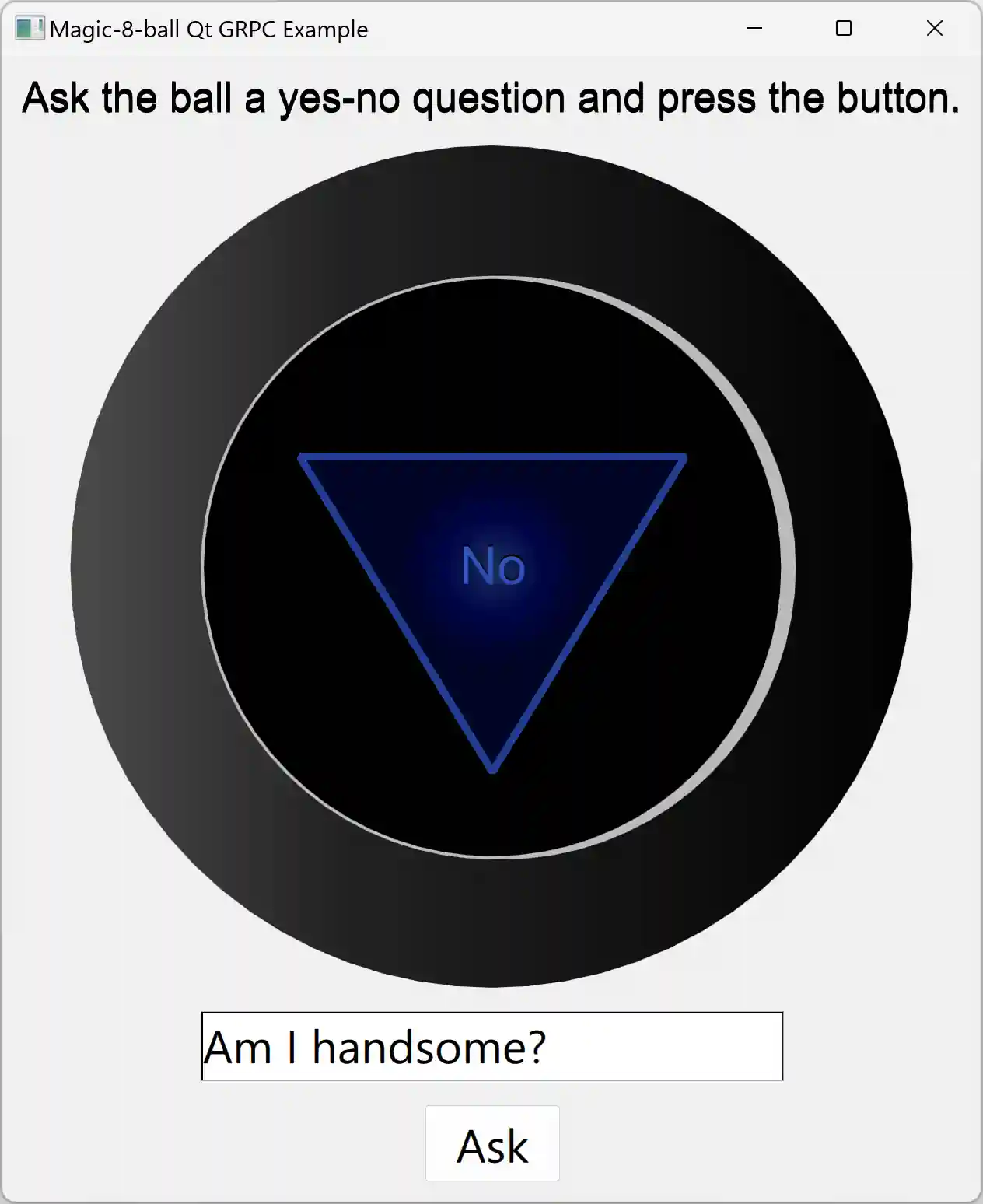魔术 8 球
在 Qt gRPC™客户端和 C++gRPC 服务器之间创建 HTTP2 连接。
Magic 8 ball 向服务器发送问题并显示收到的答案:

示例代码包括以下组件:
magic8ball使用qt_add_protobuf()和qt_add_grpc()CMake 函数生成消息和服务 Qt 代码的 QtgRPC 客户端应用程序。server调用 C++gRPC 插件生成服务器代码并执行简单服务器逻辑的应用程序。
注意: 您需要安装 C++gRPC 插件。详情请点击此处:模块先决条件
两个组件都使用exampleservice.proto 文件中描述的 protobuf 模式生成的消息:
syntax = "proto3";
package qtgrpc.examples;
message AnswerRequest {
string question = 1;
}
message AnswerResponse {
string message = 1;
}
service ExampleService {
rpc answerMethod(AnswerRequest) returns (AnswerResponse) {}
}gRPC 客户端被定义为 QML 对象,代码编译后即可使用。
ExampleServiceClient { id: grpcClient channel: grpcChannel.channel }
客户服务通过gRPC 通道选项中指定的端口50051 连接到localhost :
GrpcHttp2Channel { id: grpcChannel hostUri: "http://localhost:50051" // Optionally, you can specify custom channel options here // options: GrpcChannelOptions {} }
并向服务器部分发送请求:
function requestAnswer(question: string): void { ... root.answerReq.question = question; grpcClient.answerMethod(root.answerReq, finishCallback, errorCallback, grpcCallOptions); }
answerMethod 是客户端调用的gRPC 方法。它有四个参数:请求对象、完成回调函数、错误回调函数和GrpcCallOptions 对象。
单击Ask 按钮将请求发送到 magic8ball 服务器。
注意: 必须与客户端应用程序并行运行服务器。
server 应用程序会从答案列表中随机选择一个答案,并将数据发送到客户端端口。它还会检查请求是否包含非空字段question 。如果字段为空,则返回StatusCode::INVALID_ARGUMENT
grpc::Status answerMethod(grpc::ServerContext *, const AnswerRequest *request, AnswerResponse *response) override { if (request->question().empty()) { std::cerr << "Question is empty" << std::endl; return grpc::Status(grpc::StatusCode::INVALID_ARGUMENT, "Question is empty"); } std::cout << "Received question: " << request->question() << std::endl; response->set_message(getRandomAnswer()); return grpc::Status(); };
收到响应后,客户端程序会显示答案。
© 2025 The Qt Company Ltd. Documentation contributions included herein are the copyrights of their respective owners. The documentation provided herein is licensed under the terms of the GNU Free Documentation License version 1.3 as published by the Free Software Foundation. Qt and respective logos are trademarks of The Qt Company Ltd. in Finland and/or other countries worldwide. All other trademarks are property of their respective owners.

